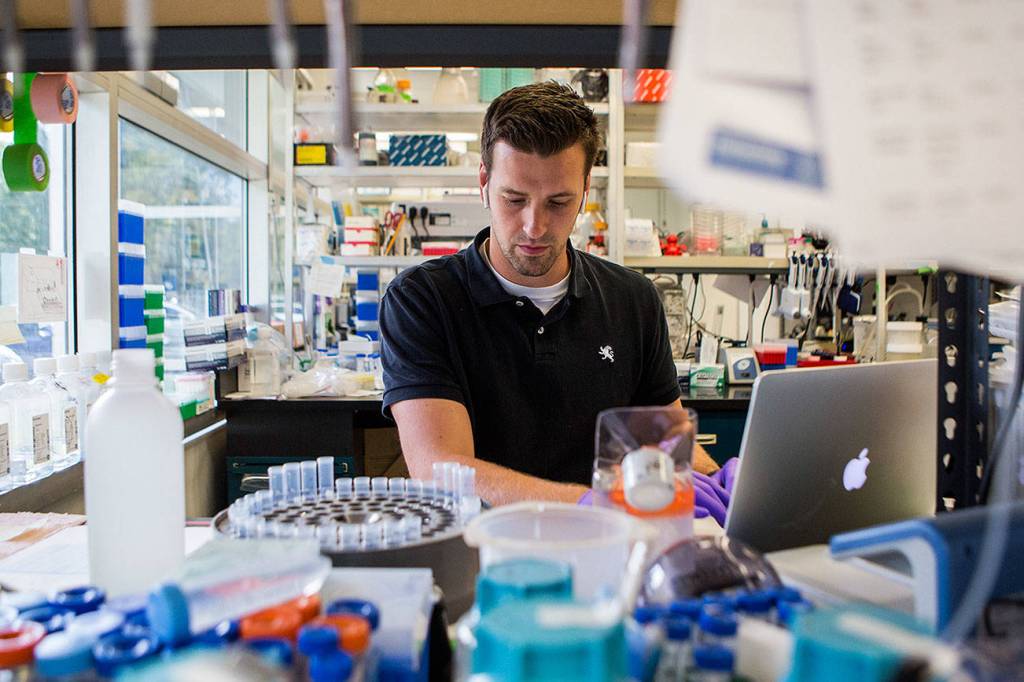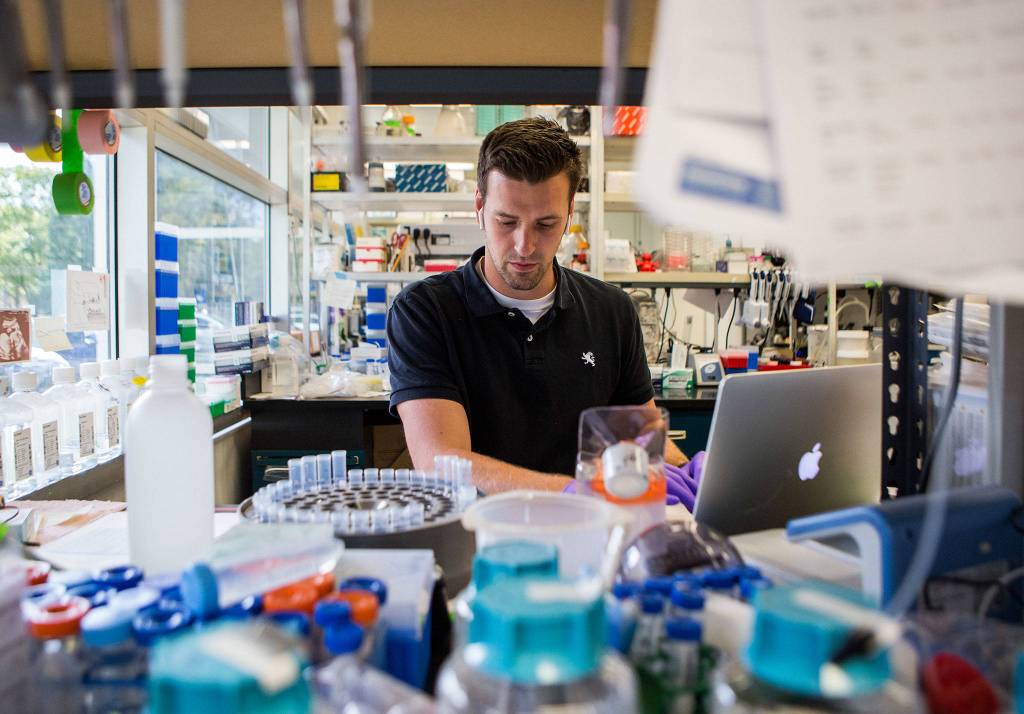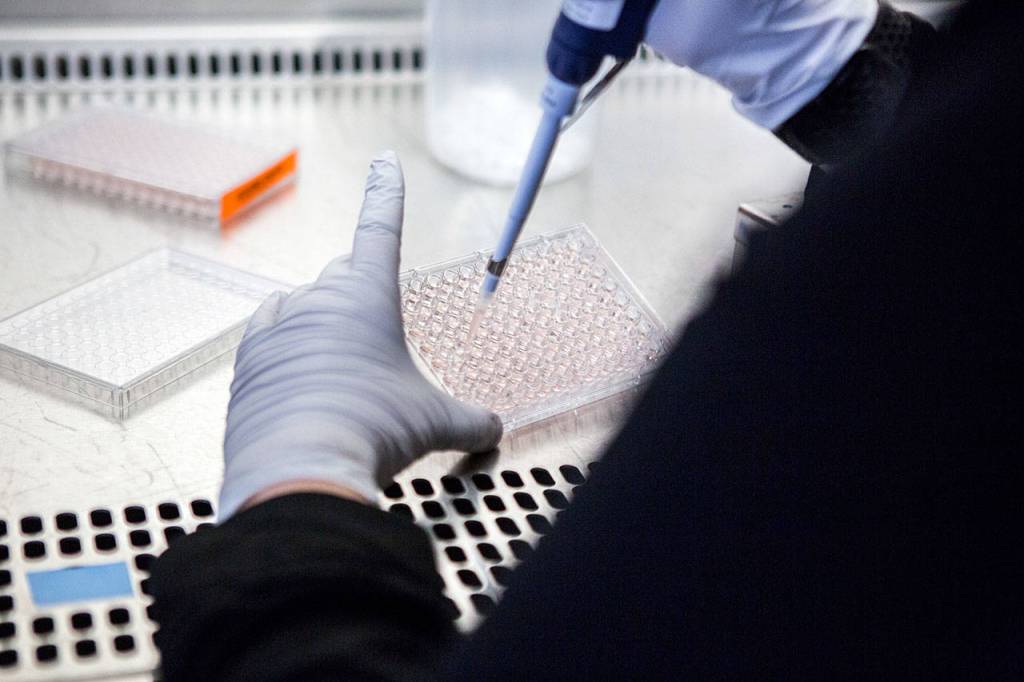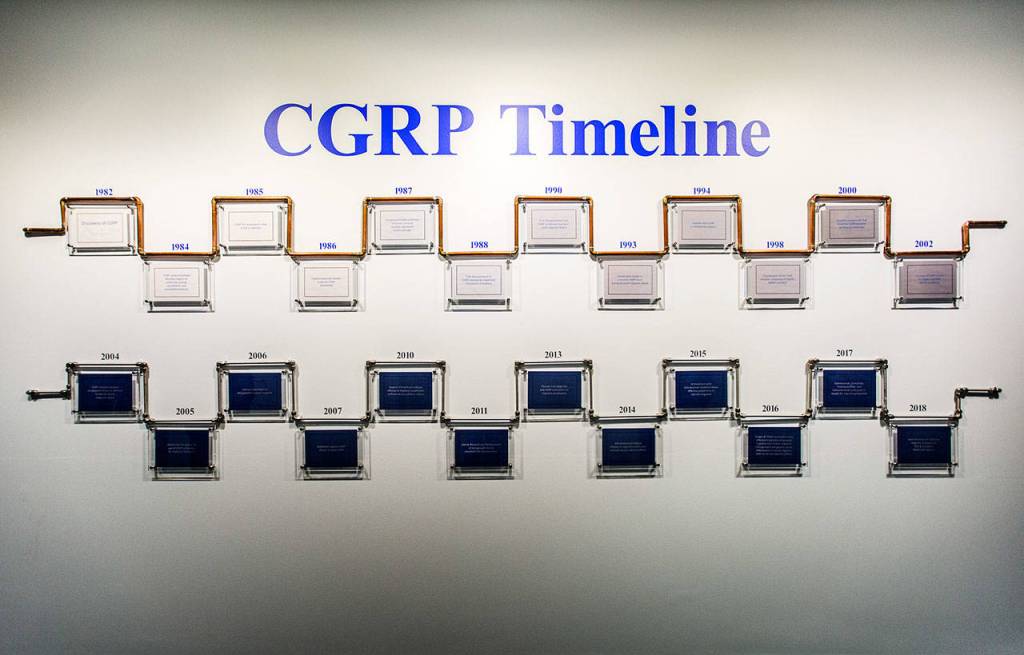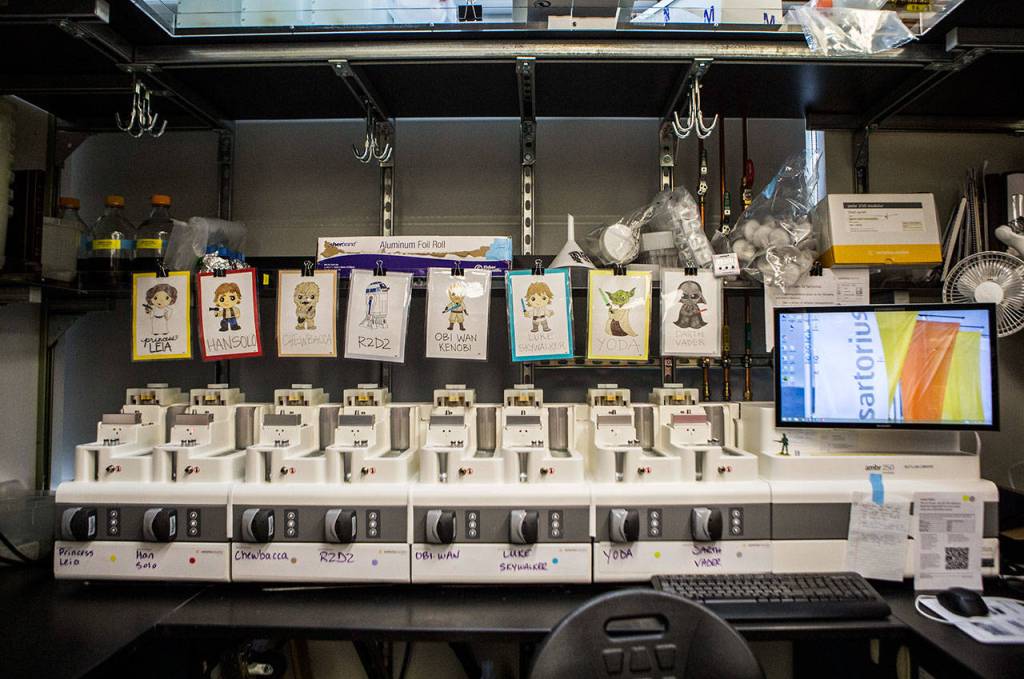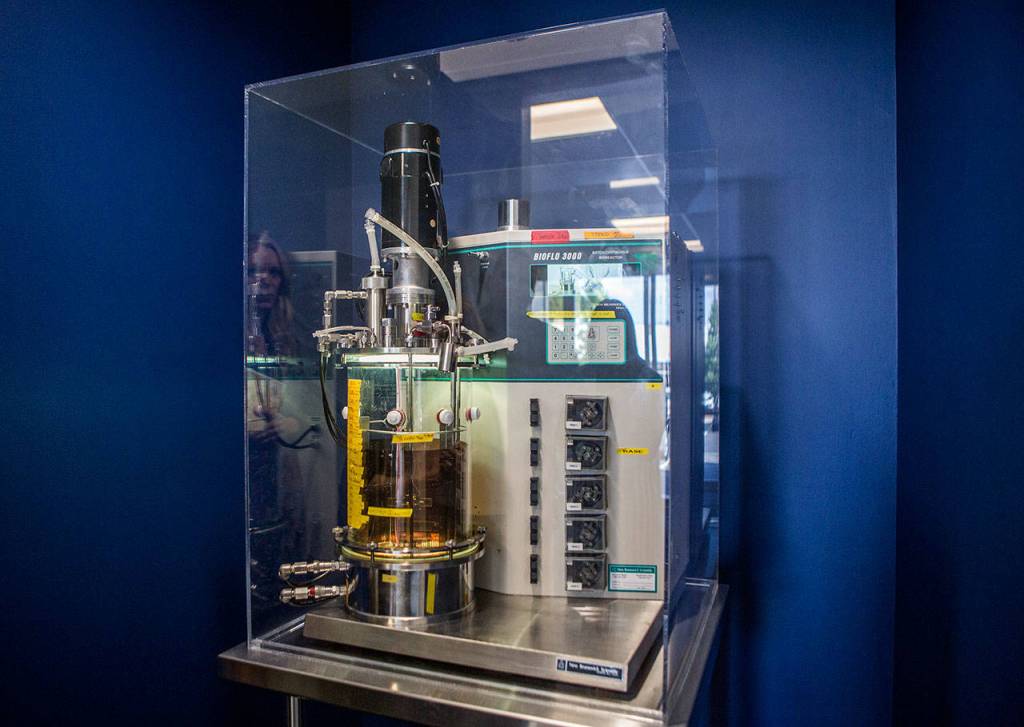For a Bothell biotech firm, a new migraine drug is personal
Published 1:30 am Tuesday, September 3, 2019






BOTHELL — “All you can do is go into a dark room and pray for it to stop.”
That quote and others like it are stenciled on the walls at Alder BioPharmaceuticals in Bothell. The company has spent 15 years developing a new drug to treat migraine headaches and now awaits the results of a federal review in February.
Alder hopes it will get a green light from the Food and Drug Administration to make its prescription drug, Eptinezumab, available in the spring.
Eptinezumab is administered through a 30-minute intravenous infusion every three months. Completed clinical trials showed it can reduce the frequency of migraines in varying degrees for up to 12 weeks, Alder CEO Bob Azelby said.
The long-acting drug works by blocking a specific protein that acts as a neurotransmitter and is linked to migraine pain, Azelby said. Eptinezumab is one of a handful of preventative drugs, some already on the market, that target that particular protein, calcitonin gene-related peptide (CGRP).
For three of the company’s four founders, including scientist John Latham, it’s personal. Each has a spouse that suffers from migraines.
In college, Latham didn’t understand why his girlfriend, Nanette, who later became his wife, couldn’t make it to anatomy class every day.
Migraines laid her low at least once a week. “My wife’s migraines just got worse and worse,” Latham said. “Someday, if I had the chance, I wanted to do something for the person that’s most dear to my heart,” said Latham, now retired.
A headache is just a headache, right?
Take some aspirin, get some fresh air. Except when the headache occurs 15 days or more each month. And try telling that to a child. Many migraine sufferers say their headaches began when they were 7 or 8.
“Not only do we have to do a better job of treating this, but recognizing it,” Azelby said.
Migraines are more than searing head pain. They are often accompanied by nausea, vomiting, dizziness and flashes of light. Episodes can last from four to 72 hours.
Many participants in Alder’s clinical trials had experienced at least 15 years of headaches, the company said.
More than 4 million Americans suffer from chronic migraine, defined as 15 or more episodes a month. Another 10 million experience four or more migraines a month.
Migraine is the third-most-prevalent disease in the world, according to the non-profit Migraine Research Foundation. Each year, sufferers spend $41 billion each year to treat the illness. In the U.S., healthcare costs and productivity losses associated with migraine are estimated at up to $36 billion, the foundation said.
About 70% to 80% of sufferers are women in the 20-55 age range.
“A third have had to quit a job because of migraines. Two-thirds have lost a promotion due to migraine,” Azelby said. “They can’t drive the kids for fear of getting an aura and being unable to see.”
Fearing the next attack is often a source of anxiety and depression.
“I live in fear of when the next one will hit,” a clinical trial participant said.
Cautiously optimistic about FDA approval, Alder, which employs about 195, is in the process of doubling its workforce, including a sales force of between 75-100 people throughout the U.S., Azelby said.
Tweedledee and Tweedledum
Developing any new prescription medication is a longshot. Only 12% of new drugs or compounds that show initial promise make it to market, according to a recent study by the Tufts Center for the Study of Drug Development.
It’s also costly.
Alder declined to say how much it spent in the development of Eptinezumab.
The Tufts study estimates that drugmakers spend an average $2.6 billion to develop a new medicine, from research trials to federal approval.
Alder expects that a year’s supply of its new drug would be priced similar to some other migraine treatments, about $6,900.
The company was launched in 2004 with a tiny research space, four employees and a healthy dose of debt.
“I didn’t take a salary for 24 months,” Latham said. “We told our spouses there would be no extra cash. I fully leveraged my credit cards.”
Being part of a drug development startup is a rollercoaster ride.
“There are days when you don’t think you’re going to make it,” Azelby said of any bio-tech’s early days. “You’re wondering, ‘Who’s going to write the next check?’”
Besides spending time in the lab, the founders spent their days wooing investors and asking for money.
The decision to take the company public in 2014 was yet another effort to raise money.
Alder trades on the NASDAQ market under the ticker symbol ALDR.
The early years were lean. Humor helped.
Pieces of second-hand equipment got silly names. A pair of “fickle” bioreactors were dubbed Tweedledee and Tweedledum, Latham said.
Used to support biological compounds, “those old machines were problematic,” Latham said. Today, they’re gleefully displayed outside the research labs.
The christening continues. Lab equipment is labeled and named for characters from “Star Wars” and the “Flintstones.”
Sam Marzolf, a researcher, has worked at Alder for 13 years.
“When I was hired, I was told early on not to get too comfortable here because we might not make it, ” Marzolf said.
“It’s nice to see something all the way through.”
The dream: Leave the laptop at work
Heather Malcolm, vice president of human resources at Alder, gets about nine to 12 migraines every month.
She hopes that Eptinezumab will help free migraine sufferers from the pain and the dread that comes from worrying when the next migraine will hit.
Employees and spouses are not allowed to participate in clinical trials.
“They’re working so hard to make a big difference for what I am suffering from. Working at Alder has been an absolute passion project for me,” said Malcolm, her voice cracking over the phone.
Malcolm’s migraines began when she was a child but weren’t diagnosed until she was in college.
She experiences them as pain, nausea and vertigo. “It feels like an ice-pick is being driven through my head,” she said.
“My dad had migraines. He was completely disabled by them. He would turn green and go to bed,” she said.
Malcolm, 47, has spent a good portion of her life “powering” through the pain. “I’m determined to not let it keep me from things I do.”
“My dream is to be the first ‘Epti’ patient” she said, referring to Eptinezumab and its hoped-for approval.
Beyond that, Malcolm hopes she can stop taking her work computer home every day.
If she develops a migraine overnight, she has her laptop and can work at home. It’s part of her constant back-up plan.
“I’d like to be able to leave it behind,” she said.
Janice Podsada; jpodsada@heraldnet.com; 425-339-3097; Twitter: JanicePods

